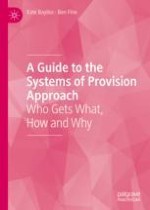2020 | OriginalPaper | Buchkapitel
5. A SoP Approach to Understanding Food Consumption
verfasst von : Kate Bayliss, Ben Fine
Erschienen in: A Guide to the Systems of Provision Approach
Aktivieren Sie unsere intelligente Suche, um passende Fachinhalte oder Patente zu finden.
Wählen Sie Textabschnitte aus um mit Künstlicher Intelligenz passenden Patente zu finden. powered by
Markieren Sie Textabschnitte, um KI-gestützt weitere passende Inhalte zu finden. powered by
